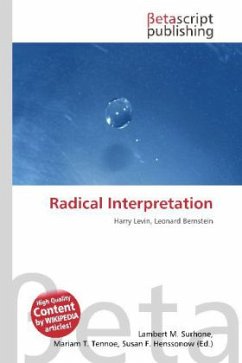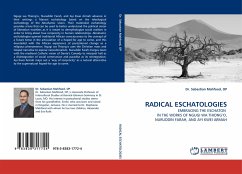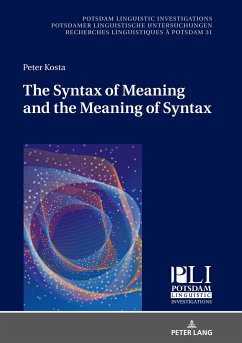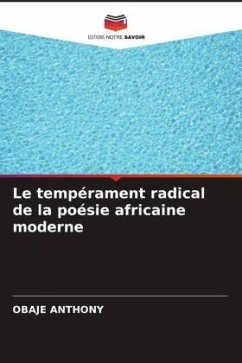
Radical Interpretation
Versandkostenfrei!
Versandfertig in 6-10 Tagen
23,99 €
inkl. MwSt.

PAYBACK Punkte
12 °P sammeln!
Please note that the content of this book primarily consists of articles available from Wikipedia or other free sources online. Radical interpretation is interpretation of a speaker, including attributing beliefs and desires to them and meanings to their words, from scratch--that is, without relying on translators, dictionaries, or specific prior knowledge of their mental states. The term was introduced by American philosopher Donald Davidson (1973) and is meant to suggest important similarity to W. V. O. Quine''s term radical translation, which occurs in his work on the indeterminacy of trans...
Please note that the content of this book primarily consists of articles available from Wikipedia or other free sources online. Radical interpretation is interpretation of a speaker, including attributing beliefs and desires to them and meanings to their words, from scratch--that is, without relying on translators, dictionaries, or specific prior knowledge of their mental states. The term was introduced by American philosopher Donald Davidson (1973) and is meant to suggest important similarity to W. V. O. Quine''s term radical translation, which occurs in his work on the indeterminacy of translation. Radical translation is translation of a speaker''s language, without prior knowledge, by observing the speaker''s use of the language in context. Even more so than radical translation did for Quine, radical interpretation plays an important role in Davidson''s work, but the exact nature of this role is up for debate. Some see Davidson as using radical interpretation directly in his arguments against conceptual relativism and the possibility of massive error -of most of our beliefs being false.












